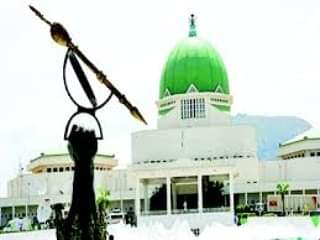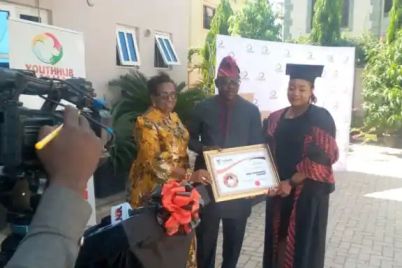The House of Representatives Committee on Public Accounts has summoned the
Central Bank of Nigeria (CBN) Godwin Emefiele over non reconciliation account of the apex bank’s financial operations between 2014 and 2019.
Chairman, House Committee on Public Accounts, Hon. Oluwole Oke who confirmed that the Committee has the power to direct the Auditor General of the Federation (oAuGF), Economic and Financial Crimes Commission (EFCC) and Independent Corrupt Practices and other related Offences Commission (ICPC) to take certain steps for any MDAs over any wrongdoing.
“As for rendition of accounts, we have a referral from the House to investigate non-rendition of accounts. We have written CBN on this and one of their directors appeared and carefully take a date to render the account if any. But if they have not, we will all see it when they appear, so that is the situation.
“They are coming here next week Thursday. I mean they were here Thursday, we invited them and they honoured our invitation. The governor could not come, but he sent a very senior director. We are talking about 2014 to 2019.
“Like I have told you we had written CBN just like we had written every other Corporation to come to the Parliament to show us evidence of rendition of the audited accounts. So the Director appeared yesterday on behalf of Central Bank and he took a date. So we would be expecting them to come with copies of their audited accounts for the period under review and evidence of rendition to the Auditor General.”
While responding to questions on the misgivings over the powers of the Auditor General of the Federation on certain agencies, he affirmed that the Auditor General of the Federation has unlimited to carry out periodic checks and balances as well as access to records of all the MDAs established by the Act of Parliament.
“For purpose of clarity on whether CBN complies with rendition of accounts and powers of the Auditor General to audit Central Bank account, the Constitution has settled the matter in section 25 sub 3. The Auditor General cannot directly audit accounts of corporations such as CBN, NNPC, NPA, NIMASA, Shippers Council. Under section 85 paragraph three, it states that the auditor general shall have only powers to conduct periodic checks. And from these periodic checks, the auditor general forms his opinion.
“Secondly, the external auditor that these Corporations engage are engaged based on he advise of the Auditor General. As a matter of fact, the Auditor General must accredit those external auditors. Now the external auditors on the conclusion of the audit of these Corporations submit the account to the Corporations.
“The Corporations are mandated by the Constitution to submit their accounts so audited by the external auditor. The Auditor General in turn engages consultants or their personnel to review the audited account submitted by these corporations, and thereafter make his report before the parliament. And I am sure this process is to ensure checks and balances.
“But I think through the periodic checks and balances, the Auditor General has unlimited access to records. So if the Auditor General has a problem in conducting the checks on the books of these corporations, they should tell us if they have any problem. If they have problem of accessibility to records of these corporations, they should tell the Parliament.
“In any case, the Auditor General’s office is an independent office. They are not under anybody’s control except the Parliament, because this committee pursuant to Order 18 Rule 6 oversights the office of the Auditor General of the Federation,” the PAC Chairman stressed.
While giving update on the activities of the Committee with regards to certain MDAs placed on Status of Inquiry and the reasons for passing such resolution, Hon. Oke said: “It is to know the mandate of the organization. And one thing must have led the committee to place the organization or agency on status enquiry.
“We want to know the mandate, the health and well-being of that organization because have been looking at issues of law, the Act the Parliament setting up that agency; the performance of the agency over the years, the problems confronting the agency, the achievements of the agency, and so our findings would help us to take further legislative actions.
“We give them enough time to make their submissions. If they make their submissions, if there is need for us to conduct an on the spot assessment, we so do. If our findings reveal that there is need for us to direct an agency of government to take certain steps, it could be like the auditor general, the EFCC, ICPC, if we see any wrongdoing, we write to them to go and look into it. Ours just stops at oversight. IAR&T was on status enquiry based on the query placed on the agency vis-a-vis rendition of accounts. Also the agency has been in the news for sometime.
“But I would not want people to take this negatively like I said, when we place an agency on status enquiry, we owe that agency a duty of care. We should not look at status enquiry from a negative perspective.
“Once they are creation of the law, it’s like if you plant a seed and don’t nurture it, it may not grow. When you set up a status enquiry, your findings will tell you how that agency is going. We should not look at it in the negative sense, because in the process you may discover the problems confronting that agency. From there you may see need to amend a law setting up that agency.
“Sometimes probably there is need to repeal that agency. If there are duplications, if there two or three agencies doing the same thing, that is hostage. So this kind of engagements helps legislative activities. It helps us to promote efficiency and block leakages.
The chairman insisted, “If you don’t carry out this kind of exercise, how would you know how that agency is faring? Do they have enough personnel? Are their workers paid when due? These are the kinds of things we get to know and take appropriate legislative actions,”
END





